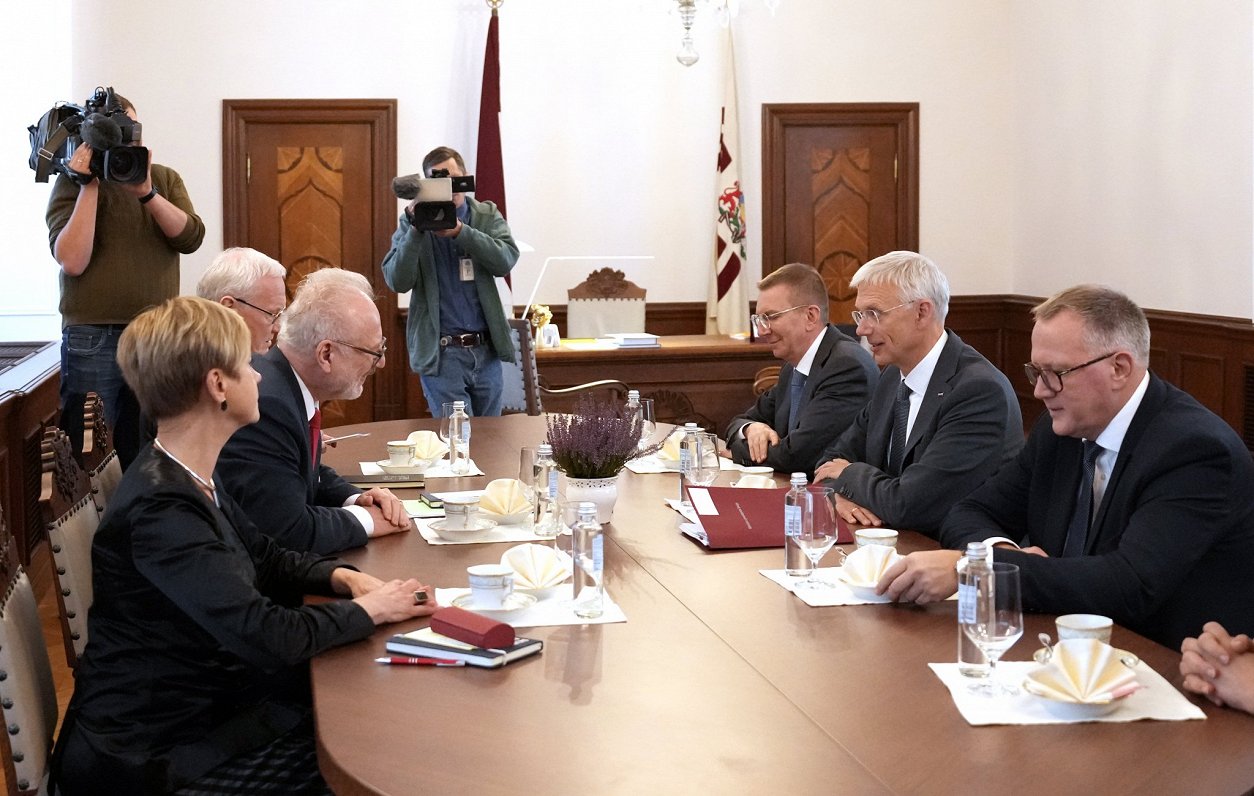Speaking after a third set of weekly talks with Prime Minister Krišjānis Kariņš in the wake of the October 1 Saeima elections, Levits signaled that a three-party model consisting of Jaunā Vienotība (New Unity, JV), Nacionālā Apvienība (National Alliance, NA) and Apvienotais Saraksts (United List, AS) would form the basis for an inter-party agreement. According to the results of the 14th Saeima elections, these political forces will have a total of 54 mandates in the 100-seat parliament.
"The most important news is that there will be three parties in the coalition," Levits said.
However, Levits also mentioned that a separate potential agreement of some sort between New Unity and the Progressives – the fourth party which now seems to be excluded from the coalition – remained a matter for those two parties.
According to subsequent comments from Kariņš, that might consist of an agreement in principle to support the government in parliamentary votes in exchange for a ministerial portfolio under the aegis of New Unity – but without the Progressives being part of the government as a party. As later indicated by the Progressives' leader Kaspars Briškens, Progressives would not accept this offer.
It is planned to discuss this offer between potential coalition partners on Wednesday morning. According to the President, the parties should sign a memorandum of cooperation this week, and after a week or two, they should agree on the division of labor in government. Levits did not name a specific date for the formation of the government.




























